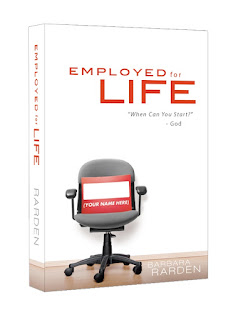Sunday morning, June 4, 1989, a friend rode his bicycle to our university to tell us troops had entered the square early that morning. Back then there was no internet for instant news. We got our shortwave radio searching and found the confirmation on an Australian station. It was one of those moments where you always remember where you were when a tragedy happened.
The next 8 days were a whirlwind of confusion, anger and great sadness. The television news had been broadcasting daily accounts of the student protests on Tiananmen Square. Now the news had returned to wheat production and other farming news. That seemed the scariest of all until a few days later the stations were reporting the atrocities the students had inflicted on the troops sent to the streets of Beijing.
The only reliable news could be found on the poster boards on campus. We would walk to the main campus and find English-speaking students that could translate the latest news from Beijing. During the early stages of the protests, our students marched from our campus to the downtown area to gather with other students to show their support of the ones in Beijing. Our university would send buses to bring the students back. It had all seemed like a benign activity in our city.
Everything changed that Sunday. As far as we could find out later, no students from our university were killed in Beijing. That weekend was an exchange where the protesting students were traveling back to our city and their replacements were heading toward the capital. We were told they were given free rides on trains and buses. One student asked us what we were going to do during the revolution. I told him I hoped there was not a civil war. There had been rumors of a renegade general that was gathering troops outside of Beijing preparing to invade the city.
After the State Department announced on Voice of America that all Americans were advised to leave China, we began packing up and getting tickets for Hong Kong. That was difficult because our city had a large population of foreign businessmen and teachers. The Japanese were the first to leave. There was still so much animosity toward the Japanese that they knew they should leave early. When it looked like we would not be able to fly to Hong Kong, we made a decision to stay because traveling by train would make us travel through serious hotspots. Students had blocked tracks in Wuhan, a major transportation hub. We heard later that friends there had to walk with their luggage over the train bridges to get transportation on the other side to the airport. A special plane had been sent by the State Department to evacuate the Americans. Finally our foreign affairs department were able to secure tickets. A delegation that had been coming to our city cancelled because of the protests. We were able to secure their return tickets.
Before we left, students came to our apartment. They were shocked and told us they were the 'people of no hope'. One young man traveled to Beijing to confirm what had happened. He interviewed a student that had been on the square. The man told him that when the troops entered, he had pretended to be dead as they swept through the square. After the troops had moved on, he crawled over bodies to get away.
The Chinese have a saying that basically means 'tell a lie a thousand times and it becomes truth'. The propaganda agency kicked in immediately and all over China the 'events' in Beijing and across the country became distorted. When foreign teachers returned the following fall, they were told that the 'foreign element' had influenced the protests and they were warned not to discuss the situation with their students. Our foreign affairs office hosted a farewell banquet for us before we left. During the evening, they said it was not really necessary for us to leave because everything was under control in Beijing.
At the airport, I could not stop the tears from flowing over the loss and the tragedy of the Tiananmen incident. Isaiah 55 had been a chapter that spoke to us throughout our preparation and first years in China. The last two verses came to me and I actually had joy with tears in my eyes. Good would come out of this terrible situation.
When we boarded the plane, we discovered that the crew seats had been sold. During take-off the stewardesses, went in the galley and held on to the handles of the cabinets. One passenger had to stand during the entire flight because her staff seat had to be up during the flight so the bathroom door could be opened.
We arrived in Hong Kong with no idea what would happen next. We called our organization's HK office and found out that the Christian community had thrown open their doors to house and feed all the teachers poring into Hong Kong. We stayed with a Canadian family that had kept an American family the week before. Our HK staff worked efficiently to not only provide for the teachers and their families but to work tirelessly to get on-going flights back to North America.
A couple of years later when it was safe to contact former students, we learned that Tiananmen had been a turning point for them. They had been sent to the countryside for 're-education' and then returned to finish their degrees. They matured quickly and learned that their trust was better placed in God than with their government.
Today I still have a great sadness and felt like I finally needed to share what happened from our perspective. History needs to be told so the next generation can learn how events changed lives.



A couple of responses:
Gayle Irwin Wilson Just finished Paul by Walter Wangerin. Great.